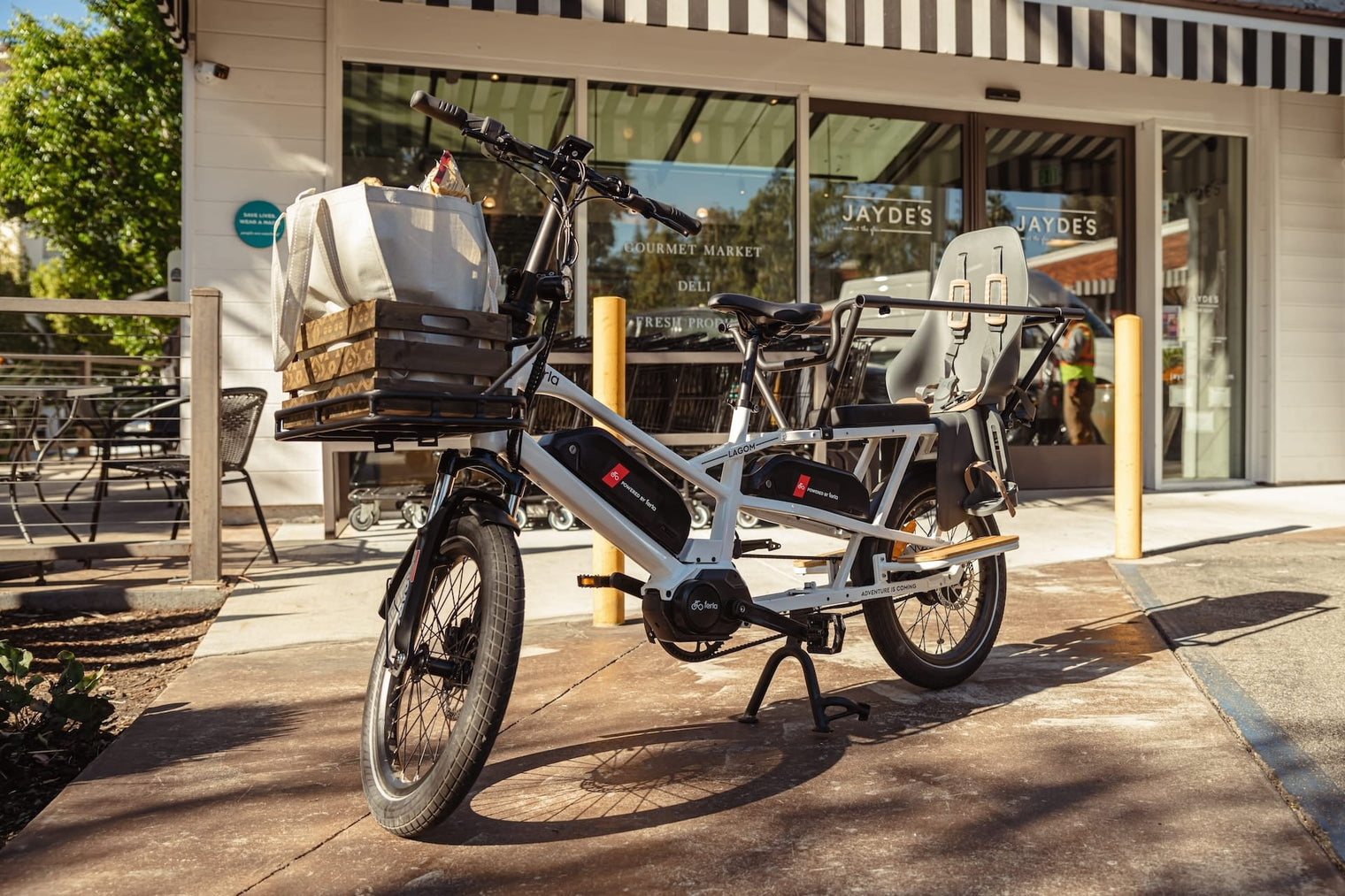With its mild climate, picturesque scenery, and largely flat terrain, the Sunshine State has become an attractive destination for e-bicycle riders. But before cycling in Florida, you should first familiarize yourself with local laws and regulations surrounding electric bikes to stay safe and avoid penalties. Here’s everything you need to know about electric bike laws in Florida, including licensing, bicycle classifications, allowed riding spaces, age restrictions, and speed limits.
Definition of an Electric Bicycle in Florida
The electric bikes Florida law defines e-bicycles as two- or three-wheeled bikes with fully operable pedals, a saddle, and an electric motor of less than 750 watts. As in the majority of other US states, electric cycles fall under three classes, according to their motor power and speed:
-
Class 1: Class 1 electric bicycles are pedal-assist. That is, the motor provides assistance only when you are pedaling. Their top speed does not exceed 20 mph.
-
Class 2: these bicycles have the same maximum speed as Class 1 bikes (20 mph), although the motor is throttle-actuated, which allows them to help you cycle even when you are not pedaling.
-
Class 3: Class 3 e-bikes are pedal-assist only. At the same time, they are more powerful than Class 1 and Class 2 cycles, as they can reach a speed of 28 mph.
Also Read: Benefits of Electric Bikes
Where Can an Operator Ride an Electric Bicycle?
Electric bike laws in Florida treat e-bikes like their traditional counterparts. Therefore, you can ride Class 1, Class 2, and Class 3 bicycles in the same places, unless local authorities prohibit this:
-
Roadways (except for limited access highways)
-
Bike lanes
-
Multi-use paths (Class 3 e-bikes may face restrictions on certain paths due to their higher speed)
-
Sidewalks (some cities restrict e-bike use on sidewalks in busy areas like downtown zones or business districts to prioritize pedestrian safety)
-
Park trails (Class 3 e-bikes may be restricted in high-traffic areas)
Local Florida Laws on Electric Bikes
In Florida, local governments have the authority to enact ordinances that regulate e-bike use on streets, highways, sidewalks, multi-use paths, and park trails. For example:
-
Tampa: prohibits electric bicycles in certain downtown and business zones.
-
Miami: does not allow e-bikes on busy sidewalks downtown.
-
St. Augustine and Sarasota: restrict e-bikes on some sidewalks in crowded areas with high pedestrian traffic, such as tourist zones.
-
Sanibel Island: prohibits e-bikes on shared paths and many public areas.
-
Pinellas County: does not allow electric cycles on some beaches or natural trails.
Do You Need a License or Registration for an Electric Bicycle?
Since electric bike Florida laws regulate e-bikes like ordinary cycles, you do not need any license, registration, or special permits to ride in the state. Insurance is also not required, but it’s still better to get bicycle coverage for your peace of mind, especially if you want to protect your property from theft or accidents.
Helmet Laws and Age Restrictions
According to the electric assist bike laws in Florida, there is no minimum age for operating Class 1 and Class 2 bicycles. However, an operator may ride an electric bicycle of the Class 3 legally only if they have already reached 16.
Furthermore, Florida law on electric bikes implies that all riders under 16 must wear a helmet when cycling. There is no such requirement for those who are 16 years old or more, but it’s strongly recommended to put on a helmet for safe riding practices. Additionally, it should meet the standards of the American National Standards Institute, as well as be securely fastened with a strap and properly fitted to provide adequate protection.
Read Also: How to Ride Electric Bike: Complete Guide for Newbies
Are Electric Bikes Allowed on Public Roads?
Electric bikes Florida laws do allow you to cycle on public roads, except for limited-access highways, provided that your bike meets classification requirements (has a motor of 750 watts or less and does not exceed 20 or 28 mph). At the same time, electric cycles are subject to the same traffic laws as traditional bicycles. So, here are the rules you must follow when riding on public roads:
-
Ride with the flow of traffic, except when you are preparing for a left turn, passing another vehicle, or avoiding hazards.
-
Equip your 2 wheeled bike with a front white light visible from at least 500 feet and a rear red light visible from at least 600 feet.
-
Make sure your brake system is working properly.
-
Keep at least one hand on the handlebars when cycling.
-
Do not carry more passengers than your bike is designed for (the same applies to carrying cargo).
-
Obey all traffic signals, including traffic lights and stop signs.
-
When riding on sidewalks or multi-use paths, yield to pedestrians and provide audible signals.
Final Thoughts on Electric Bike Laws in Florida
The state of Florida electric bike laws are rather loyal, which promotes an eco-friendly way of getting around and encourages people to opt for e-bicycles instead of cars. However, local regulations can change, especially in response to safety incidents or infrastructure modifications, so it’s crucial to stay updated. Consider the following resources to make sure you are compliant with Florida electric bike laws:
-
Florida Statutes 316.003, 316.2065, and 316.2068
-
Florida Bicycle Association
-
State Parks
-
Local Government Websites (e.g., miami.gov and miamidade.gov)



